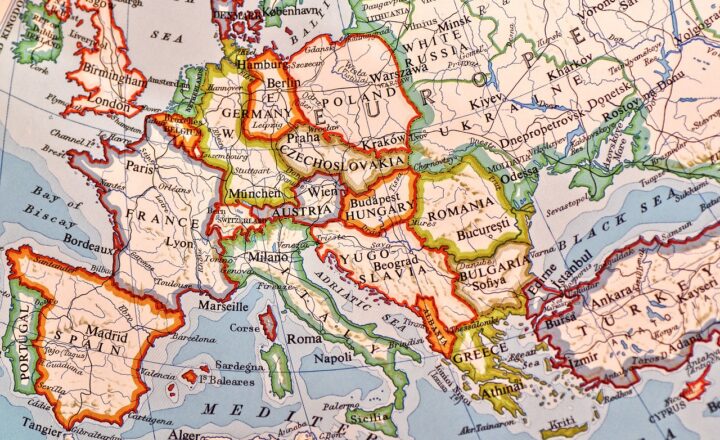
Sanctions are a powerful tool used by nations to exert pressure on each other, typically due to issues related to foreign policy, human rights violations, or international law breaches. They can take various forms, including economic sanctions, trade restrictions, or military embargoes, and their effects can ripple through various sectors, including military agreements. Understanding the impact of sanctions on military agreements is crucial in today’s geopolitical climate, as many nations navigate complex relationships marked by historical tensions and modern strategic interests.
1. What are Military Agreements?
Military agreements refer to treaties, arrangements, or contracts between nations that govern military cooperation. These can include defense pacts, joint military exercises, arms-sharing agreements, and security guarantees. They play a significant role in international relations by enhancing a country’s military capabilities and strengthening strategic alliances. The essence of military agreements is to foster collaboration for mutual security, deterrence against potential aggressors, and enhancement of defense capabilities.
Some key examples of military agreements include:
- NATO Treaty: A collective defense agreement among NATO member states ensuring mutual defense against aggression.
- U.S.-South Korea Mutual Defense Treaty: A formal agreement that commits both nations to defend each other against external threats.
- Arms Agreements: Treaties that regulate the transfer of military technologies and weapons systems between nations.
These agreements often require a solid financial and resource commitment from the involved nations, contributing to their overall defense posture.
2. Overview of Sanctions: Purpose and Types
Sanctions are imposed by countries or international bodies to influence a nation’s behavior. They can serve a variety of purposes, including:
- Punishing nations for aggressive actions or violations of international norms.
- Deterring undesirable behavior in the future.
- Promoting human rights and democratic governance by exerting economic pressure.
There are mainly two categories of sanctions:
- Comprehensive Sanctions: These involve broad restrictions on trade, economic activity, and military cooperation, effectively isolating the country from the international community. Examples include sanctions on North Korea and Iran due to nuclear proliferation concerns.
- Targeted Sanctions (Smart Sanctions): These are more specific measures aimed at targeted individuals, institutions, or sectors, often aimed at limiting the impact on the general population. For example, targeted sanctions may focus on government officials or specific industries related to defense procurement.
Sanctions can reshape military agreements, particularly regarding cooperating nations’ perspectives on security and defense strategies.
3. The Relationship Between Sanctions and Military Agreements
The interplay between sanctions and military agreements involves a domino effect, where the imposition of sanctions leads to shifts in military collaborations. Here are the main impacts of sanctions on military agreements:
3.1. Disruption of Existing Agreements
When sanctions are imposed, nations may find themselves unable to fulfill their obligations under existing military agreements. This disruption can take different forms:
- Termination of Agreements: Countries under sanctions may no longer be able to cooperate on joint military efforts or enforce stipulated obligations. For instance, sanctions against Russia following its annexation of Crimea led to the suspension of various military agreements with Western nations.
- Limitation of Cooperation: Countries may choose to limit or modify the scope of their military collaboration to comply with sanction requirements, leading to diminished capability in joint defense initiatives.
3.2. Shift in Strategic Alliances
Sanctioned nations often seek alternatives for military support, leading to:
- New Alliances: Countries facing sanctions may turn to non-Western allies (such as China or Russia) for military cooperation. This can lead to the formation of new agreements that may counteract Western influence in global politics.
- Strengthened Ties Through Sanctions: Countries that impose sanctions may find their military agreements strained, while nations under sanctions find solidarity in mutual defense, creating stronger ties among sanctioned nations.
3.3. Impact on Defense Spendings and Military Development
Sanctions can severely impact a nation’s defense budget and military development:
- Decreased Military Budgets: Sanctions can lead to reduced revenue streams, resulting in cuts to military budgets and affecting the maintenance of existing military agreements. For instance, sanctions on Iran have significantly impacted their defense capabilities and procurement processes.
- Increased Reliance on Domestic Production: Countries facing sanctions may become more self-reliant on local arms production and technology development as they may not have access to foreign military technology under sanctions.
4. Case Studies: Sanctions Affecting Military Agreements
Examining historical examples can illustrate the complex relationship between sanctions and military agreements:
4.1. The United States and Iran
Since 1979, the U.S. has imposed various sanctions on Iran, affecting military agreements between Iran and several nations. The sanctions limited Iran’s procurement of advanced military technology, significantly impacting its military development. As a response, Iran sought military partnerships with countries like Russia and China, marking a significant redirection of its military strategy.
4.2. Russia and Ukraine
Following Russia’s annexation of Crimea in 2014, Western nations imposed sanctions impacting Russia’s military collaborations with NATO member states. Russia sought closer military cooperation with non-Western nations, leading to new agreements in defense technology and joint military exercises with countries like China and India. This shift represents how sanctions can lead to a reshaping of military alliances.
4.3. North Korea and Global Sanctions
North Korea has faced relentless sanctions aimed at curtailing its nuclear program. These sanctions have led to a forced isolation and a reliance on military partnerships with China and Russia, resulting in military agreements that may defy the intentions of Western sanctions. The outcome of this scenario illustrates the resilience of military collaboration in times of pressure.
5. The Future of Military Agreements in a Sanctioned World
Looking ahead, the relationship between sanctions and military agreements holds several implications:
- Increased Fragmentation of International Relations: As nations use sanctions more liberally, the likelihood of fragmented military alliances may increase, leading to a world where military agreements are based on exclusion rather than inclusion.
- Evolving Security Dynamics: Military agreements may increasingly reflect changing geopolitical realities, emphasizing partnerships that can withstand economic sanctions, resulting in a multipolar defense structure globally.
- The Role of Technology in Countering Sanctions: As nations face sanctions, advances in defense technology may proliferate as countries prioritize developing indigenous military capabilities capable of countering external threats without reliance on sanctioned technology.
Sanctions will continue to present significant challenges and reshape military cooperation between nations, creating a complex tapestry of alliances in an ever-evolving geopolitical landscape.
Conclusion
The impact of sanctions on military agreements is multifaceted, affecting both the breadth and nature of cooperation between nations. By analyzing historical examples, the consequences of sanctions become crystal clear: they disrupt existing agreements, promote new alliances, and precipitate shifts in defense strategies. As geopolitical tensions continue to rise, understanding these dynamics will prove essential in anticipating future military collaborations and the global security landscape. The ongoing evolution of military agreements in a world marked by sanctions will undoubtedly shape the future of international relations, influencing how nations choose to stand together or apart amid rising threats.







